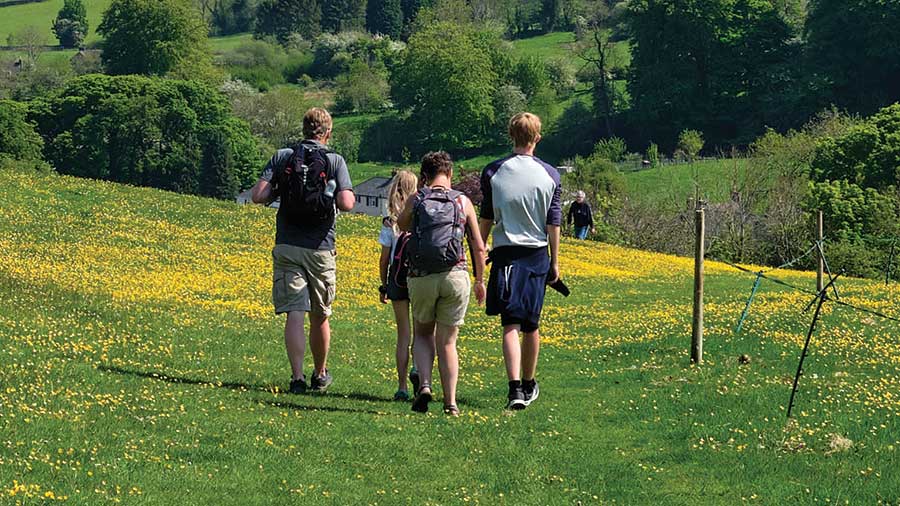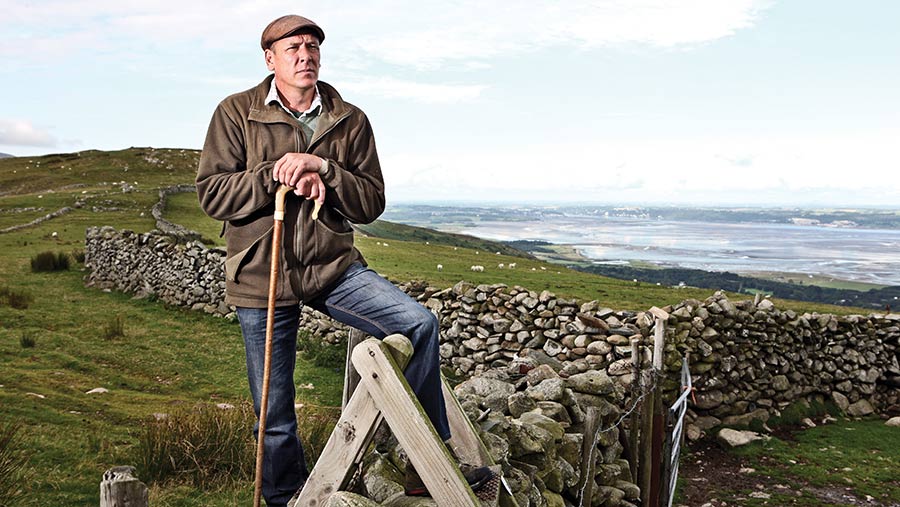Analysis: Should people have the right to roam in England?
 © Nigel/Adobe Stock
© Nigel/Adobe Stock Earlier this year, the Labour Party pledged that, if elected, it would seek to introduce a Right to Roam Act in England.
In a move that would match the legislation already in place in Scotland, such an act would enshrine access to farmland, green spaces, woodland, and rivers in English law, opening up the countryside, including private land, to the wider public.
It is a notion that has been widely supported by Green Party leader Caroline Lucas, who first proposed the Countryside and Rights of Way Act (2000) Amendment Bill to parliament last September.
Now awaiting its second reading, the bill calls for greenbelt and grasslands to be added to open access lands in England, along with a right to camp on this land.
But, with littering and dog attacks on livestock at an all-time high, and a public lack of understanding when it comes to the Countryside Code, a right to roam could have serious implications for farmers.
See also: Lambs die in dog attack, as cost of worrying rises by 50%
What is the right to roam?
In England and Wales, under the Countryside and Rights of Way Act of 2000, the public have the right to walk on certain parcels of land without having to keep to public rights of way.
This is known as “open access land” and usually includes moors, mountains, heaths and downs, as well as council owned land and coastal paths.
In Scotland, however, under the Land Reform (Scotland) Act introduced in 2003, the public are able to access most land and waterways provided they act reasonably and responsibly, with a few exceptions including gardens and land with crops.
The reality of the right to roam, however, can add to the existing pressures that farmers face.
One Scottish farmer, who wished to remain anonymous, told Farmers Weekly:
“In Scotland, ‘Right to roam’ is actually a ‘right of responsible access’, but the public do not differentiate and their idea of responsible is very different to a farmer’s idea.
“It has been a disaster for farming and causes untold mental health problems for farmers, particularly those near urban areas, where large areas of productive agricultural land are now unfarmable because insurance companies will not provide cover for livestock farming due to historical incidents.
“Agriculture is being cleared away to make way for irresponsible dog walkers, hill runners, mountain bikers and party campers.
“The only area in which the Scottish outdoor access code gives landowners any semblance of control is in organised events, but huge resistance and bullying is received from the organisers when we attempt to influence even route choice of a running event – for example, to avoid soft wet peat, ground-nesting birds or areas with young livestock.
“England should do all it can to avoid following Scottish legislation in this area.”
Who wants a right to roam?
The Right to Roam campaign group has gained momentum over the years, with thousands of active members taking part in mass trespass events to raise awareness for the cause.
Spokesman Jon Moses summarised the campaign’s goals: “We’re looking to create parity between the Scottish system of access, replicating the Scottish system in England,” he said.
“At the moment, we have an access system where the default is exclusion and there is no democratic discussion about that. It is at the whim of often quite large landowners, so we want to change that.
“This doesn’t mean that the right to roam is about a free-for-all, with people going everywhere at all times, as there will obviously be places where it is inappropriate for people to be walking.
“But those decisions can be made on a democratic, collective basis rather than an arbitrary one.”
A public opinion poll carried out by Opinium on behalf of the Country Land and Business Association (CLA) in July 2022 surveyed 2,000 people across the UK to gauge the demand for greater access to the countryside.
The results suggest the Right to Roam campaign is dominated by a small, yet vocal minority.
Asked whether they believed walkers should have a right to roam anywhere in the countryside or stick to footpaths and bridleways, 70% of respondents voted in favour of remaining on designated paths.
Only 21% believed that a right to roam should be implemented in England.
Access to land
Campaigners claim that only 8% of England’s countryside is accessible to the public.
In England and Wales alone, the CLA estimates there are more than 140,000 miles of public rights of way, including footpaths and bridleways, which is equivalent to walking around the Earth almost six times.
Public parks and other open access land also contribute a further 1.42m hectares to this tally, and many landowners willingly grant unofficial permissive access to parts of their land where no right of way exists.
The CLA estimates that this is likely to add tens of thousands of miles worth of pathways, though official numbers are unrecorded.
The Woodland Trust says there are also more than 500,000ha of woodland available to the public in England and Wales, with 73% of people in the UK having access to at least 20ha of woodland within 2.5 miles of their homes.
Open Spaces Society comment
The Open Spaces Society is a charity dedicated to keeping greens, commons and footpaths accessible to the public.
A spokesperson said that the organisation welcomed the Labour Party’s open access intentions, though believed landowners would need to be kept in check.
“We welcome Labour’s interest in broadening access and are keen to work with it on the detail,” they said.
“We should be delighted to see wider access, especially close to where people live, provided that it does not interfere with or undermine the public rights-of-way system, which is of immense value to all who want to enjoy the outdoors.
“Both public access and public rights of way must be properly resourced, unlike in the past, and local authorities must devote the necessary staff and money to ensure that landowners and managers adhere to the law.”
Farmer warns of ‘disaster’ for farmers and wildlife
Welsh farmer Gareth Wyn Jones says that introducing a right to roam would be “disastrous”, not just for farmers, but for wildlife too, and that the proposition is a clear play for votes.

© Richard Stanton
“We’ve got enough areas with public footpaths, with thousands of acres for people to roam on with no problems at all. Opening up private land to the right to roam is just ludicrous,” he said.
“We’re a working, living landscape with cattle and sheep on our farm that will be disturbed. And it’s not just the animals on the farm, but the wildlife as well.
“During nesting season there are parts of the farm that we keep away from ourselves because we know it’s heavily populated with nested curlews, lapwings and other species.”
With friends in Scotland reporting an increased number of dog attacks, leaving farm gates open and littering, Gareth said: “It’s absolutely ridiculous, and the majority have no respect for the countryside.
“I have spoken to a lot of Scottish farmers where the right to roam has been an absolute disaster for them, especially when it comes to attacks on livestock.
“We’ve got enough headaches and hassle in our lives without opening it up to more problems.
“I love to see people come into the countryside and enjoy it, and it is important that we do share it, but there are places that we need to keep safe.
“Gates being left open, litter being left behind, and dogs off leads are daily occurrences.
“There’s no respect for the Countryside Code, there’s no educational system, so these people just don’t know. We have to keep a balance in the countryside.”
